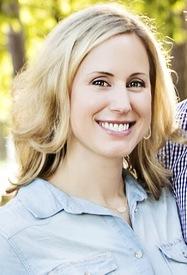what meal do you consume most calories?
Replies
-
Doesn't matter for weight loss. I eat my biggest meal around 10pm0
-
I am most hungry towards the end of the day so tend to back load my calories and have a 500 calorie dinner and a bigger snack in afternoon and evening. It is hard for me to sleep if I am hungry so I like to eat my calories later in the day.0
-
Breakfast usually
 0
0 -
It doesn't have a significant effect on weight loss or body composition. I tend to eat the most at night. I'm rarely hungry in the mornings so I generally don't eat breakfast unless I'm working out in the morning.
This is a good general overview with links to supporting studies. It's worth a read to put the information into context and decide for yourself what fits into your training program and goals.
https://authoritynutrition.com/does-nutrient-timing-matter/0 -
Wynterbourne wrote: »I eat about half my calories for breakfast, because studies have shown that it contributes to greater weight loss and better control of other health markers (abdominal obesity, fasting glucose, triglycerides).
But don't take my word for it (as everyone else commenting so far seems to expect you to do), read some of the studies I'll provide links to below.All of those sayings about ..."Eat breakfast like a king, lunch like a blah blahh" just aren't backed up by any science.
All else controlled if you eat at a deficit (let's say 1,500 calories is a deficit for you), you would lose the same amount of weight if you ate all 1,500 for breakfast OR all 1,500 for dinner, or if you had 15 meals that were 100 calories.
Wrong.meal timing doesn't affect weight loss
This study compared eating a small breakfast, medium lunch, and large dinner, [200, 500, 700 cal]
with eating a large breakfast, medium lunch, and small dinner [700, 500, 200 cal].
"The [large breakfast] group showed greater weight loss and waist circumference reduction ... fasting glucose, insulin [&] triglycerides ... decreased significantly to a greater extent in the [large breakfast] group."
In addition, hunger was less and satiety was greater.
Abstract: http://www.ncbi.nlm.nih.gov/pubmed/23512957
Full text:
http://genetics.doctorsonly.co.il/wp-content/uploads/2013/07/Jakubowicz-at-al-Obesity-2013-oby20460.pdf
"subjects assigned to high caloric intake during breakfast lost significantly more weight than those assigned to high caloric intake during the dinner"
Abstract: http://www.ncbi.nlm.nih.gov/pubmed/24467926
Full text: http://www.tradewindsports.net/wp-content/uploads/2014/03/Nutrient-Timing-and-Obesity-2014.pdf
"data suggest that a low-calorie Mediterranean diet with a higher amount of calories in the first part of the day could establish a greater reduction in fat mass and improved insulin sensitivity than a typical daily diet."
http://www.ncbi.nlm.nih.gov/pubmed/24809437
Hrrmmm, I almost never eat breakfast so almost zero of my daily caloric intake is at that time and I've lost nearly 90lbs. Am I a figment of my imagination, am I actually eating breakfast and having memory loss, or maybe just maybe meal timing doesn't affect everyone? I know which one I'm betting on.
So, with no breakfast, what time is your first snack?? You must be hungry all morning. I could never do this.
I don't have a "snack" either. I usually have two meals a day with the first one being around 1pm. And no, I'm not "hungry all morning" because the reason I skip breakfast is because I'm not hungry when I wake up or for hours later. Eating at a certain time, just because society says you should, when you aren't hungry leads to weight gain in the first place. If I'm not hungry, I'm not going to eat just because it's "breakfast time." And so far it's worked for me. For people who do get hungry in the mornings, by all means eat breakfast, but I won't be told by others that my not eating breakfast is unhealthy or some recipe for disaster and will never allow me to lose weight. I have 90lbs that say otherwise. Different things work for different people, but just because something doesn't work for you doesn't make it wrong for someone else. Find what works for you despite what others say.2 -
Dinner is my largest meal but if I were able I would prefer it to be lunch.1
-
Supper and evening snacks, which sometimes just run together into one long nosh.0
-
The evening meal is usually my biggest meal. I always call my biggest meal dinner whether is is lunch or supper. We always eat dinner together but usually eat breakfast and lunch on our own. I also don't have time for a big meal in the morning. Is usually have about half my calories our breakfast and lunch and then about half for dinner and maybe an evening snack. For weight loss meal timing doesn't matter.1
-
Dinner for me.
That is when the family sits down together to eat and talk and I like to have a substantial meal then (they need it for their calorie needs and I don't want to eat a special meal, although have smaller portions depending what else I have eaten that day).
I don't generally feel like eating much first thing, and lunch I prefer to be smallish, or actually a couple of reasonable snacks instead.0 -
It varies for me, too. However, breakfast is a rare thing for me, unless I crave eggs or French toast/pancakes. It can be up to 6 hours after waking before I eat something as I am not hungry.
Meal timing does not matter. If it did, I wouldn't have lost 90lbs.1
This discussion has been closed.
Categories
- All Categories
- 1.4M Health, Wellness and Goals
- 398.2K Introduce Yourself
- 44.7K Getting Started
- 261K Health and Weight Loss
- 176.4K Food and Nutrition
- 47.7K Recipes
- 233K Fitness and Exercise
- 463 Sleep, Mindfulness and Overall Wellness
- 6.5K Goal: Maintaining Weight
- 8.7K Goal: Gaining Weight and Body Building
- 153.5K Motivation and Support
- 8.4K Challenges
- 1.4K Debate Club
- 96.5K Chit-Chat
- 2.6K Fun and Games
- 4.8K MyFitnessPal Information
- 13 News and Announcements
- 21 MyFitnessPal Academy
- 1.6K Feature Suggestions and Ideas
- 3.2K MyFitnessPal Tech Support Questions








